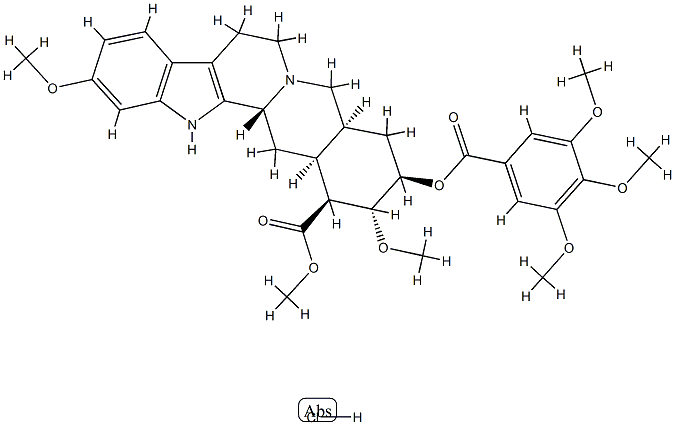16994-56-2
 16994-56-2 結(jié)構(gòu)式
16994-56-2 結(jié)構(gòu)式
物理化學(xué)性質(zhì)
| 報(bào)價(jià)日期 | 產(chǎn)品編號(hào) | 產(chǎn)品名稱(chēng) | CAS號(hào) | 包裝 | 價(jià)格 |
| 2024/11/08 | HY-N0480A | 利血平鹽酸鹽 Reserpine hydrochloride | 16994-56-2 | 100mg | 500元 |
| 2024/11/08 | HY-N0480A | 利血平鹽酸鹽 Reserpine hydrochloride | 16994-56-2 | 10mM * 1mLin DMSO | 550元 |
常見(jiàn)問(wèn)題列表
VMAT2
Reserpine hydrochloride is an inhibitor of the vesicular monoamine transporter 2 (VMAT2). Reserpine hydrochloride displays a significant on the density of dopamine D1 receptors (F 2,12 =8.81, p<0.01) in the rat striatum. The affinity (Kd) for the dopamine D1 and D2 receptors during withdrawal from acute and chronic administration of reserpine is not change. IC 50 values of 43.9 and 54.9 μM are obtained after 1 day of treatment with Reserpine hydrochloride in JB6 P+ and HepG2-C8 cells, respectively. Reserpine hydrochloride induces luciferase activity in a dose-dependent manner at concentrations ranging from 5 to 50 μM, and no significant induction is observed at concentrations lower than 5 μM. Results demonstrate that Reserpine hydrochloride (2.5 to 10 μM) also increases the protein expression of Nrf2, HO-1, and NQO1. Reserpine hydrochloride at concentrations of 2.5 to 10 μM decreases the mRNA expression of DNMT1, DNMT3a, and DNMT3b in a concentration-dependent manner in JB6 P+ cells after 7 days of treatment. Reserpine hydrochloride at 10 μM generates a significant difference for DNMT3a expression (p<0.05).
Withdrawal (48 h) from chronic (14-day) but not acute Reserpine hydrochloride administration in a dose of 0.2 mg/kg i.p. produces a significant reduction of the immobility time (F 2,18 =3.68, p<0.05), but increases the climbing time (F 2,18 =4.48, p<0.02), and does not change the swimming time (F 2,18 =1.78; NS) in the forced swim test (FST) in rats. Reserpine hydrochloride at a dose of 5 mg/kg body weight produces significant increase in the urinary excretion profile of vanillylmandelic acid (VMA) compare to control animals. The amount of 5-hydroxyindoleacetic acid (5-HIAA) excreted in animals treated with Reserpine is found to be more than in the control. Dose dependent hypotension is observed with Reserpine hydrochloride. Reserpine hydrochloride at doses of 0.5, 1, 5, 10 and 15 μg/kg produce significant (p<0.01) reduction in blood pressure compare to control.